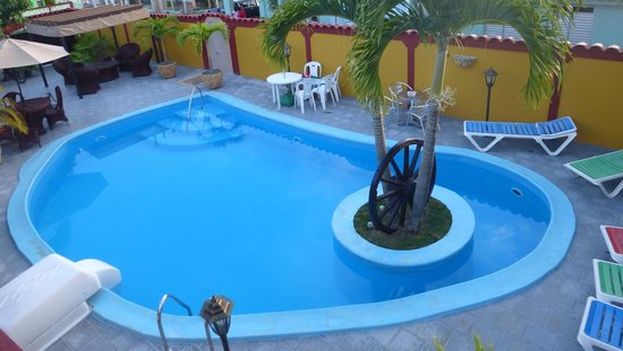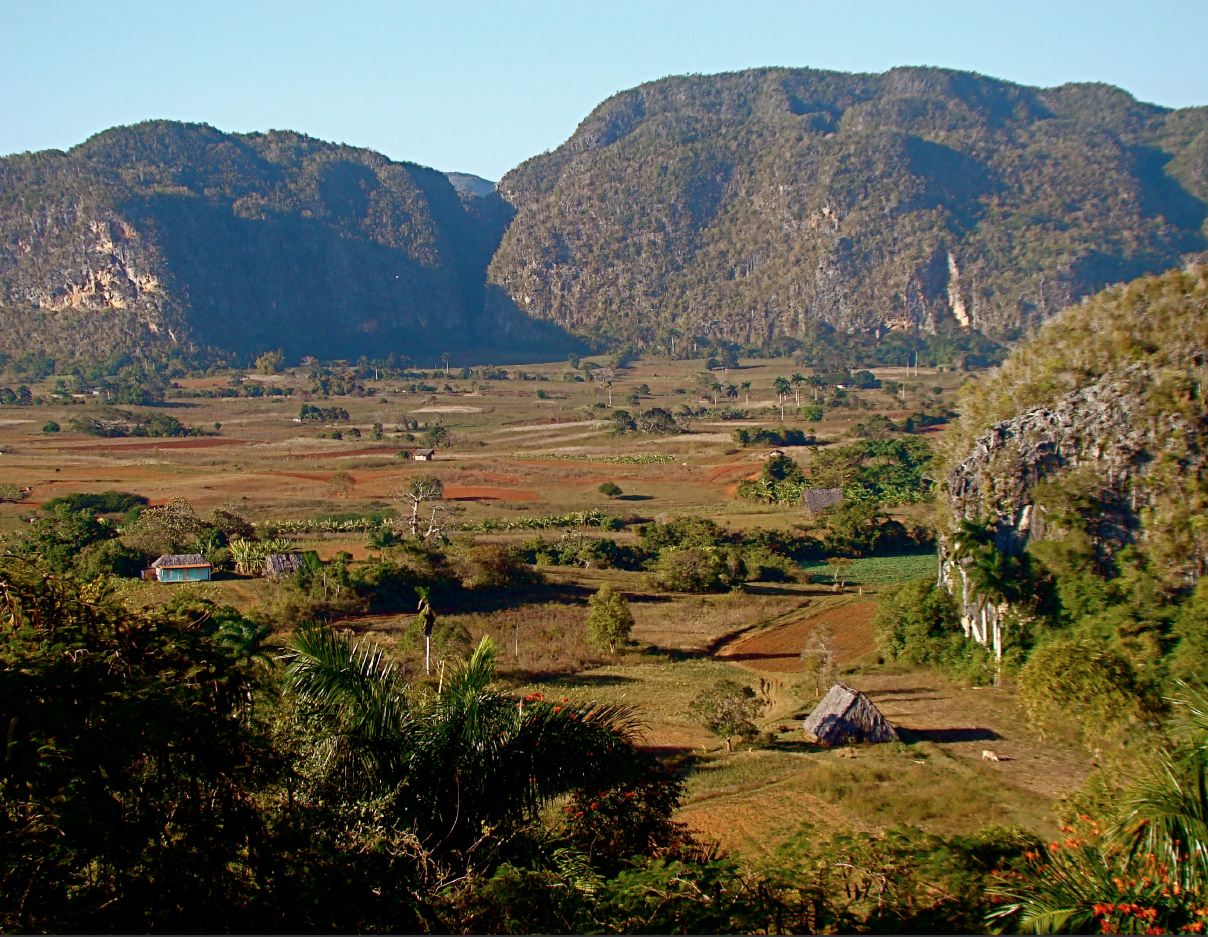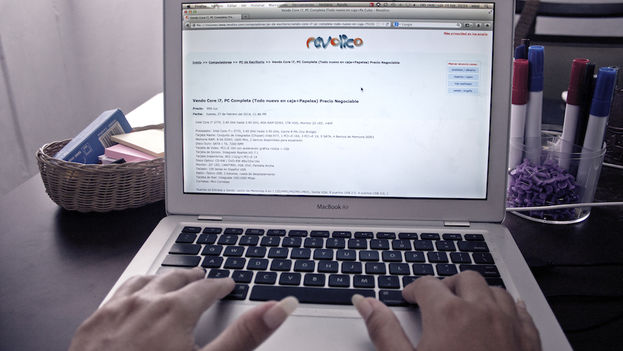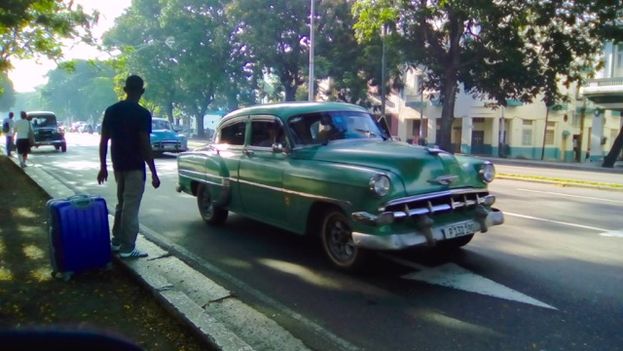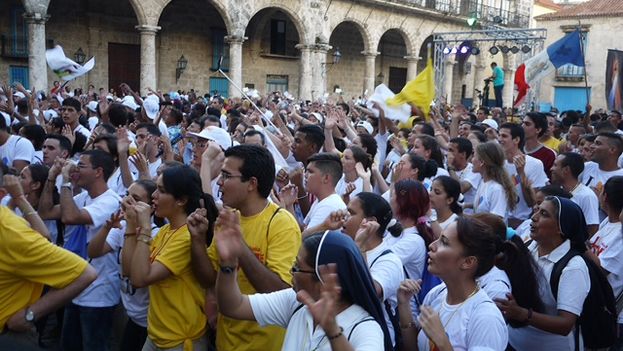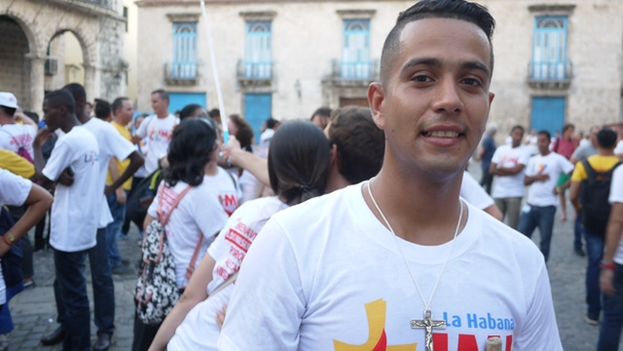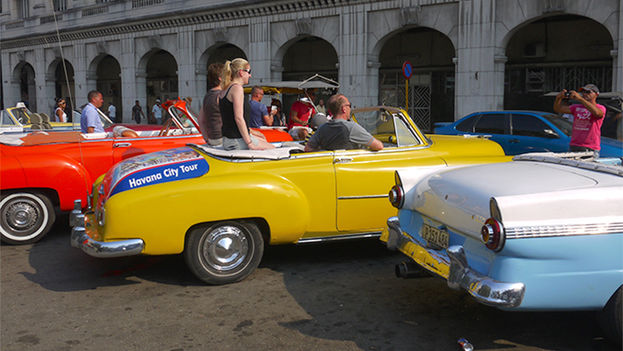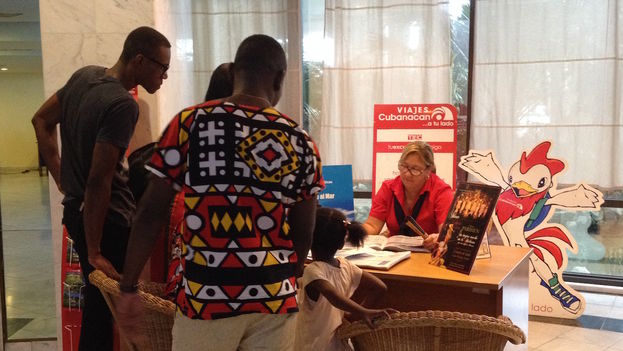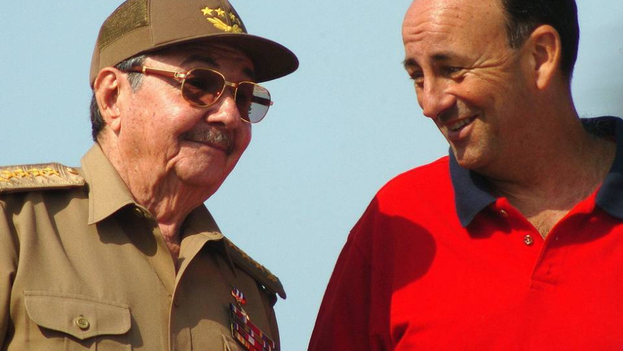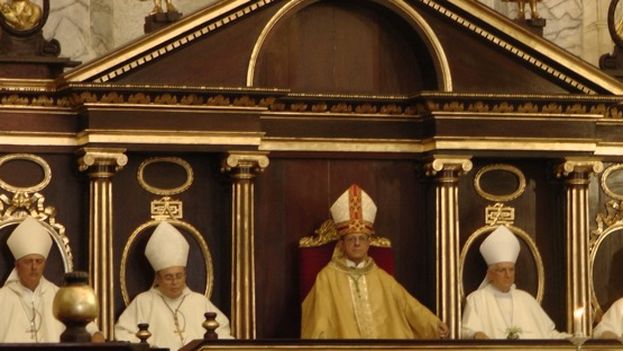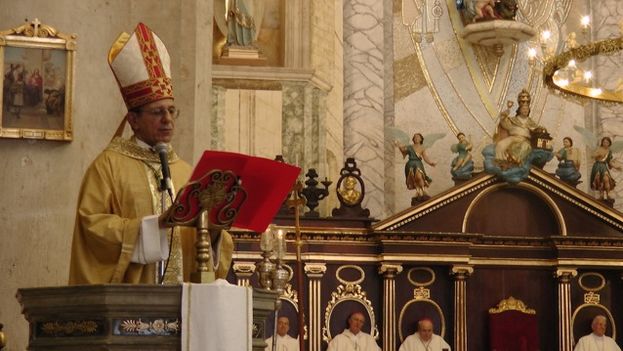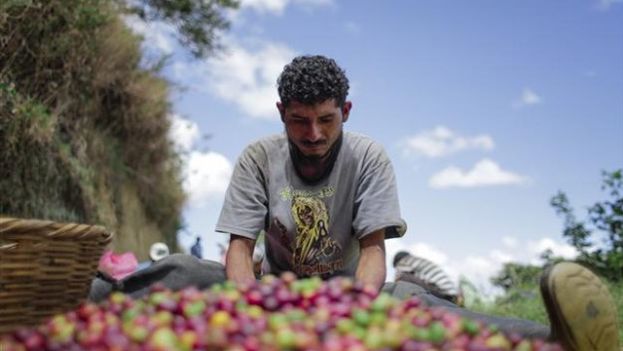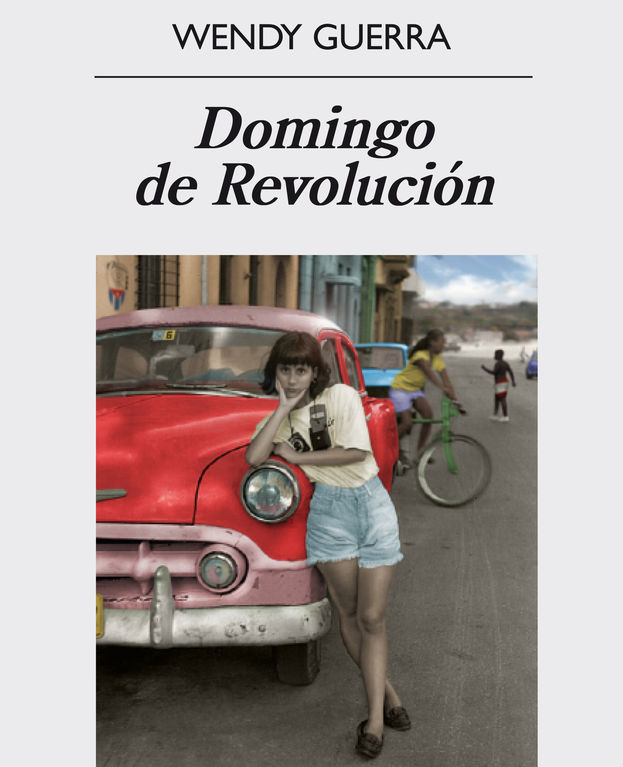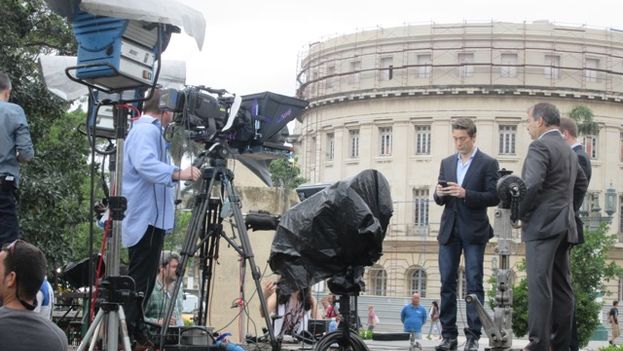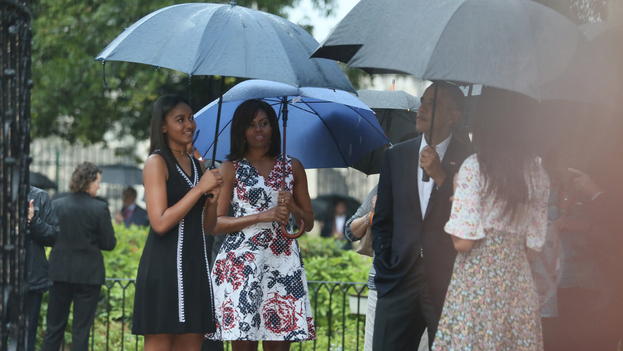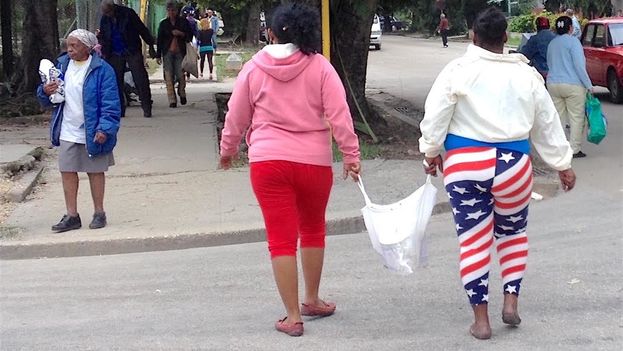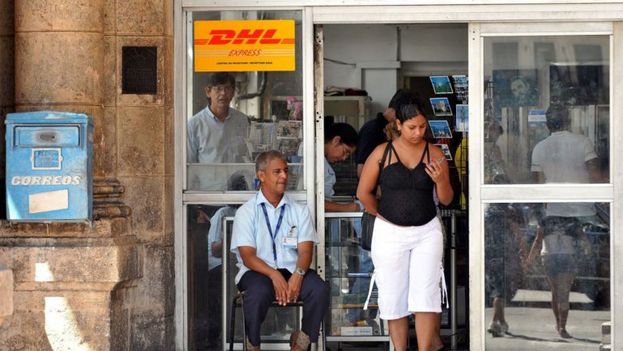
![]() 14ymedio, Zunilda Mata, Havana, 29 August 2016 — The biggest dream of those ousted is to live to tell the tale. Each passing day since he was removed from his post as Fidel Castro’s personal secretary, Carlos Valenciaga feels he is closer to outliving him. His fantasy in the midst of the old books, the dusty manuscripts and the valuable incunabula, in the dark department of the Jose Marti National Library in Havana, is that they have forgotten about him.
14ymedio, Zunilda Mata, Havana, 29 August 2016 — The biggest dream of those ousted is to live to tell the tale. Each passing day since he was removed from his post as Fidel Castro’s personal secretary, Carlos Valenciaga feels he is closer to outliving him. His fantasy in the midst of the old books, the dusty manuscripts and the valuable incunabula, in the dark department of the Jose Marti National Library in Havana, is that they have forgotten about him.
Valenciaga’s voice was the first to read the proclamation through which Castro ceded his position in July of 2006. It was his face, beardless and young, in charge of publicizing the news that many were expecting and as many others were fearing. In that crucial moment, Valenciaga was the chosen man, but that nomination would cost him on the way to the top. continue reading
During lunchtime, the basement of the National Library becomes a hive of employees lined up, some of them with their own spoon, or a container with some food they brought from home to add to the dwindling ration. A man surrounded by women is a source of funny stories and dirty jokes. Few now remember the power he once had.
Valenciagao was peering through State Security’s peephole when, on 16 September 2006, a party was organized for his 34th birthday while the president was in bed fighting for his life. A video, shown only to Communist Party members and trusted officials, he appears during the festivities with a bottle between his legs and a hilarious commander’s cap on his head.
The video includes scenes that Raul Castro would later call “indecent conduct” in an atmosphere of “moral laxity.” The General boasted of having eliminated the “test-tube baby” leaders who had risen from youth organizations to positions of greater confidence. He wanted to give the impression of having supported the institutional structure to the detriment of the caprice that prevailed in the decisions of his brother.
Although the images focused on the reasons for the dismissal of Carlos Lage from his post as vice president and of Felipe Perez Roque as foreign minister, they also led to the fall of other senior leaders. Sent to the public pillory were Otto Rivero, vice president of the Council of Ministers and one of the few names mentioned in the Proclamation; Fernando Remirez de Estenoz from the International Relations Department of the Cuban Communist Party (PCC); Martha Lomas, minister of Foreign Investment and Economic Collaboration; and Raul de la Nuez, Minister of Foreign Trade.
Accusations ranged from “addicted to the honey of power,” to having been disloyal, dishonest or havoing abused their power. The “pajama plan” – as this kind of forced retirement is called in Cuba — hung over all of them, without rights to appeal. Today, Carlos Lage languishes in the campaign against the mosquito that carries dengue fever and the zika virus, Feliz Perez Roque has had to overcome a nervous breakdown that brought him to the brink of suicide, and Estenoz rents part of the living room in his home for a restaurant with the name Complacer.
Valenciago, however, continues to attract powerful men. During the long years of his dismissal he has meticulously reviewed the documents once belonging to the aristocrat Julio Lobo Olavarria. The books making up the library of this man — who came to own 16 sugar mills, a radio communications agency, insurance, shipping and even an oil business — are the focus of attention for a once favored youngest son.
Lobo, who was obsessed with Napoleon Bonaparte, treasured more than 200,000 documents related to the French military and government, among them 6,000 letters and a repertoire of incunabula, unique and rare volumes that make up a part of the National Library’s archives, all of which were confiscated from the businessman. Valenciaga has been immersed in this treasure to draft a study on the paper money of the French Revolution.
Little now remains of his former arrogance. A drab employee of a place where they frequently send the defenestrated, he does everything possible to not be seen as a man who was once a member of the Councils of State and of Ministers. He struggles against two enemies: State Security and the lung diseases caused by a closed environment, filled with old books and poor air conditioning. Among the agents “of the apparatus” and microorganisms he spends his life.
However, the former Secretary of the State Council has had a good start, that is putting first in his bibliography consulted for his work on paper money, the book One Hundred Hours with Fidel, Conversations with Ignacio Ramonet. A volume that in its time generated a joke popular on Cuba’s streets, which asked, “Why are we going to read about 100 hours with Him, if we’ve already spent our whole lives putting up with him?”
The man who once stood at the right hand of power now walks gingerly. Department colleagues say he “doesn’t talk about politics,” he prefers sexual insinuations about the most attractive employees, rather than references to the Plaza of the Revolution and his former responsibilities.” He’s like a kid who wants to go to parties and pinch bottoms,” one of his closest colleagues tells 14ymedio.
Valenciaga lived more than a hundred hours with Fidel Castro, but is still cautiously awaiting the moment to tell the tale.

